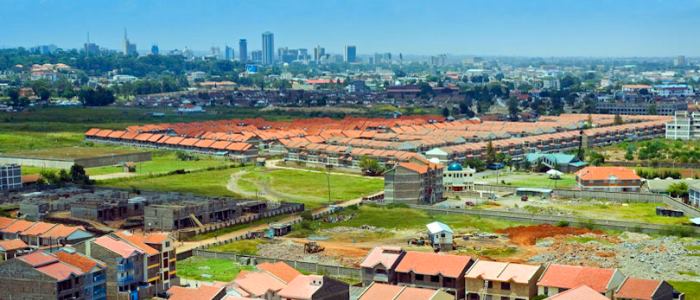By Kosta Kioleoglou
Kenya remains the largest economy in East Africa with significant potential to further capitalize on regional markets and strengthen its position as the region’s economic powerhouse.
With the recent discovery of oil, gas and coal representing a great opportunity for its overall development, Kenya is now viewed as the economic engine of East Africa. From a growing youthful population, dynamic private sector, a new Constitution and its pivotal role in East Africa, Kenya has a great potential to be one of Africa’s success stories.
However, over half of Kenya’s population is under the age of 18. That could either be the power that will make it write a success story or its waterloo.
With the current unemployment rate exceeding 42%, 50% of the country’s demographic profile of the population being under 18 years (which is not currently counted in the statistics as a labor force) and the life expectancy at birth growing yearly, the country is facing the challenge of the unemployment rate growing in the near future and exceeding even 50 plus.
At the same time, poverty headcount ratio at national poverty lines (% of population) exceeds 45% and over 40% of Kenyans live on less than $2 a day.
What is really happening?
Kenya’s economy has two main sectors over the years: tourism and agriculture. Over the past years, the property market sector has been booming, attracting most of the investments in the country and monopolizing the interest of local and foreign investors. That had a negative effect on the growth of the other two main sectors of the economy. At the same time, the industry sector remains extremely small and as a result, majority of the goods are being imported.
The basic difference between the real estate sector and the others (heavy or small industry, agriculture, tourism etc) is that real estate is creating temporary jobs while the others are on the long-term. When the real estate market will eventually stop growing or even crash, within a very short time, hundreds of thousands of workers will be unemployed. The country will face the challenge of unemployment rates that will be shocking.
Kenyans have been oriented to focus on the real estate and the stock market – the easy money, creating a fake idea that life is easy. Saccos, Chamas, and thousands of people who claim to be developers or real estate investors, have invested billions of shillings in land and property, pushing prices very high that they are not affordable anymore for the average Kenyan family. Most of those involved will lose their lifetime savings while others will be left with huge debts and no jobs. This will destroy the economy (domino effect).
The working force of Kenya is very big. Kenya’s labor force includes everything that any country could possibly dream of, to create a very strong economy, people with high education, excellent professionals, a huge human resource ready to work hard and yet working inexpensively.
People with experience and thirsty for a better life, ready to give 100% but they do not have the chance to do it. All the country needs is to create the right market conditions and use this available amazing human power. To become part of the production chain, Kenya should be prepared to properly use the over 20 million kids who are representing the country’s future or they will be added in the unemployment percentages.
To stimulate economic development, Kenya relies heavily on foreign investment. With mounting debt problems and the tightening of financial markets worldwide, net direct investment has declined and with it, the economy’s ability to meet the demands of its over 42 million people. A rising external debt, a declining currency, a low per capita income and a troublesome international financial climate, represent some of the most significant challenges to the country. Kenya’s population growth rate, one of the highest in the world, intensifies these problems.
Today nearly 40% of Kenyans live on less than $2 a day and corruption is still cited as an ongoing challenge for citizens and businesses. To effectively reduce more the poverty across the country, Kenya struggles to generate economic growth. There is an urgent need to strengthen Kenya’s private sector as the main engine of economic growth by generating employment opportunities, especially for the youth.
Kenyans need to realize that the real wealth of the country is not only in the real estate sector, but also creating sustainable growth through agriculture and tourism. This will decrease imports, increase exports and boost the economy thus generating jobs for millions of Kenyans. If no action will be taken towards the direction of sustainable growth, not only from the politicians but also from each and every person living in this country, very soon, I am afraid, Kenya will write history, but the type that people don’t like to remember.
Writer is Director of Engineering – Property Appraisal & Valuations



